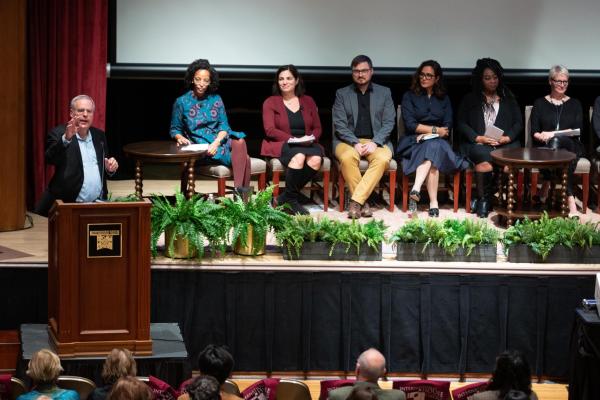Cutting-edge Scholarship
Our faculty produce path-breaking research that shapes human rights discourse and expands human rights as a field of study.
Support for the Next Generation
We offer support, guidance, and opportunities to graduate students studying human rights..
Pozen Reports
We publish occasional guides to conversations among human rights scholars and practitioners, highlighting their relevance to pressing issues of our time.




